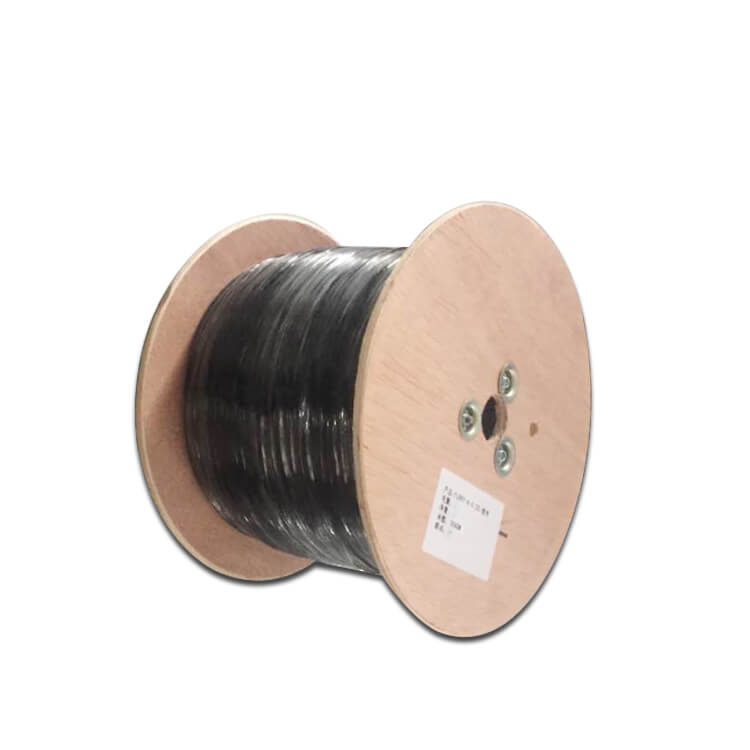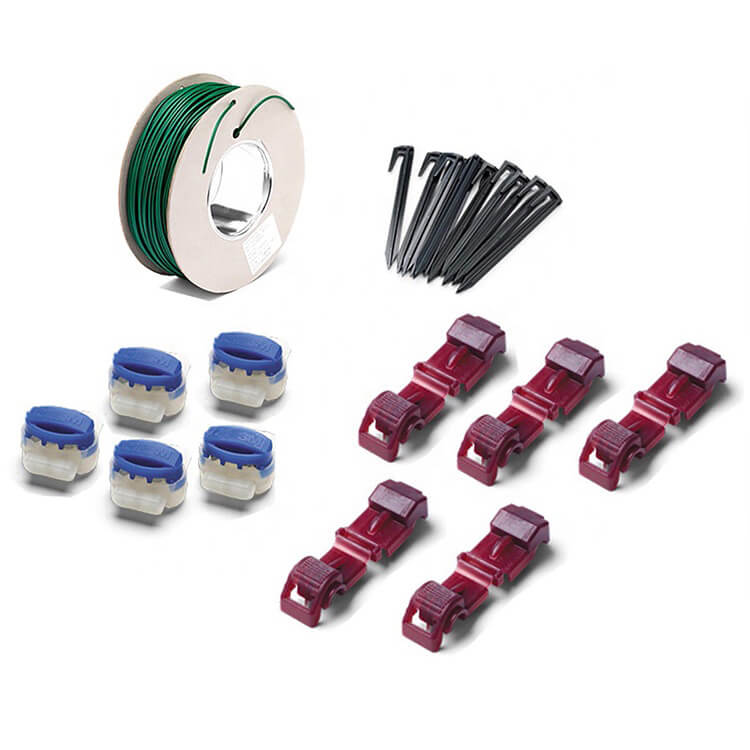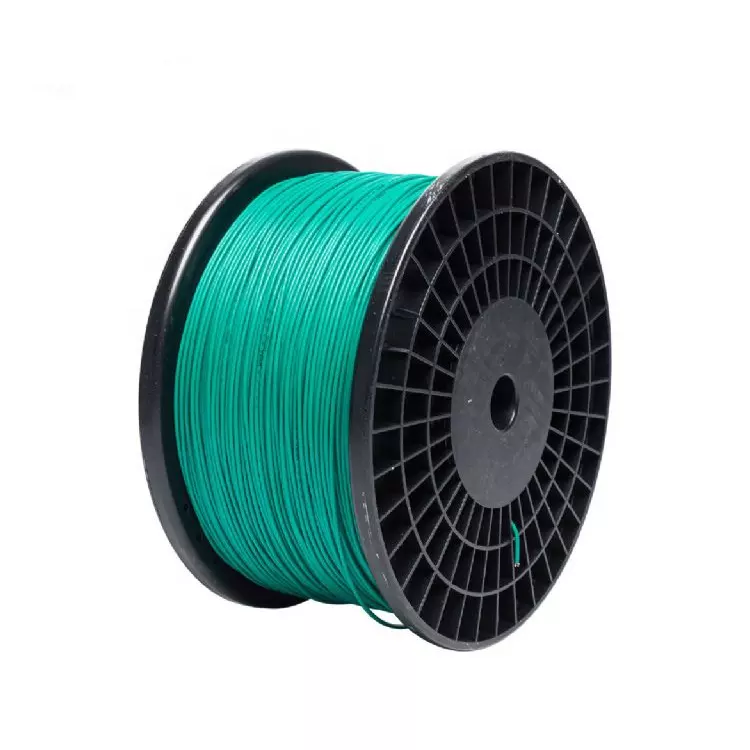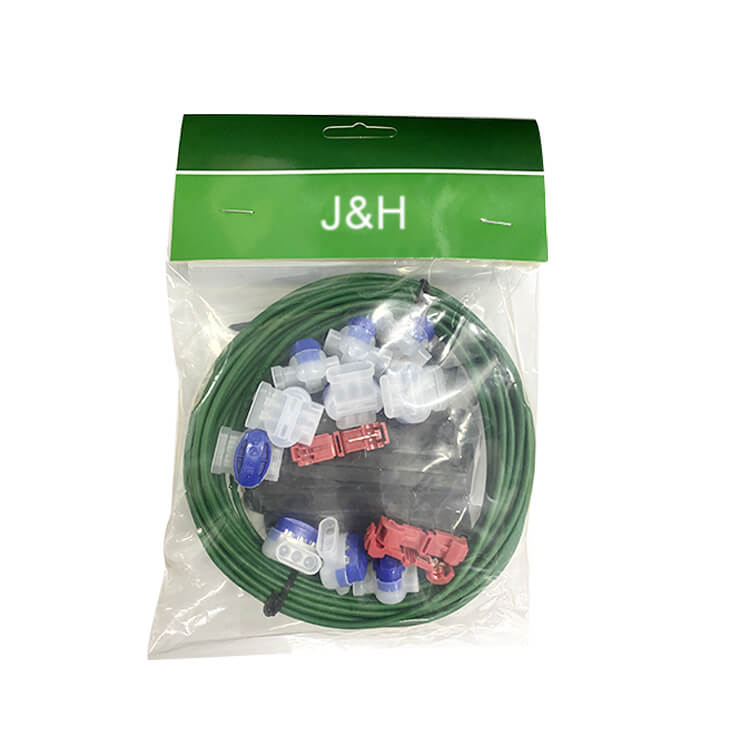First, tinned copper has excellent electrical conductivity properties. As a metal with excellent electrical conductivity, copper has always been an indispensable material in the electrical industry. Its resistivity is extremely low, allowing current to pass smoothly and without obstruction, greatly reducing energy loss during transmission. When manufacturing high temperature resistant silicone cables, choosing copper as the conductor material can ensure that the cables can still transmit power stably and efficiently under high load conditions, meeting the needs of various industrial applications. Tin plating further improves the performance of copper conductors. Tin plating can not only enhance the electrical conductivity of copper conductors, but also effectively prevent oxidation of the conductors. In harsh environments such as high temperature and humidity, untreated copper conductors are prone to oxidation reactions, resulting in the formation of a layer of oxide on the surface, which in turn affects the current transmission efficiency. The tin plating layer can block direct contact between air and copper conductors, delay the oxidation process, and ensure that the conductors maintain excellent conductivity for a long time. Tin plating also improves the corrosion resistance and wear resistance of conductors. During the use of silicone cables, the conductors may be corroded by the external environment or mechanically worn. The tin plating layer can increase the hardness of the conductor, improve its wear resistance, and form a protective layer to resist the erosion of chemical substances, thus extending the service life of the silicone cable.
Tinned copper excels in heat-resistant properties, making it an ideal conductor material for high temperature-resistant silicone cable. In high temperature environments, the performance of many metal materials will be affected, causing problems such as deformation and melting, which will affect the use of cables. However, tinned copper can maintain its good electrical conductivity under high temperature conditions, ensuring stable transmission of current. This is because tinned copper has a higher thermal stability and melting point. Even in high temperature environments, the crystal structure of tinned copper remains stable and is not prone to deformation or melting. This allows it to operate in high temperature conditions for extended periods of time without performance degradation or damage. Since silicone cables are mainly used in high temperature environments, the heat resistance of the conductor material is crucial to the performance of the entire cable. Using tinned copper as the conductor material can ensure that the silicone cable can still maintain stable electrical performance at high temperatures and meet the needs of various high temperature applications.
The workability and weldability of tinned copper are also important reasons why it is favored when manufacturing high temperature resistant silicone cables. During the production process, conductors need to go through multiple processes, including cable drawing, stranding, etc. These processes require the conductor material to have good processability. Tinned copper has exactly this characteristic. Its material is soft and tough, making the conductor less likely to break or deform during processing, and can easily complete the manufacturing of various complex shapes. In the cable manufacturing process, welding is a crucial link, which is directly related to the conductive performance and safety of the cable. The surface of tinned copper is smooth and uniform, which can provide a good welding interface, making the welding process smoother and the welding quality more stable. In addition, the tin plating layer can also prevent the oxides produced during welding from affecting the welding quality, further improving the reliability of welding. Because tinned copper has good processability and weldability, manufacturers can complete the production process more efficiently and improve production efficiency when producing high temperature resistant silicone cables. At the same time, high-quality welding quality can also ensure the conductive performance and safety of the cable, thus improving the quality and service life of the product.
To sum up, tinned copper as a conductor material has excellent electrical conductivity, heat resistance, processability and weldability, making it an ideal choice for manufacturing high temperature resistant silicone cables.

 ENGLISH
ENGLISH 简体中文
简体中文 GERMAN
GERMAN SPAIN
SPAIN
 +86 181-5747-1135
+86 181-5747-1135







 Abroad:+86 181 5747 1135
Abroad:+86 181 5747 1135 FAX: +86 574 8900 7636
FAX: +86 574 8900 7636 E-mail:
E-mail: 

 read the map
read the map

